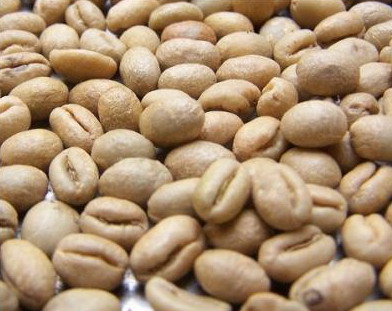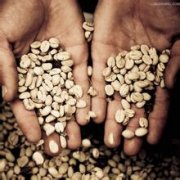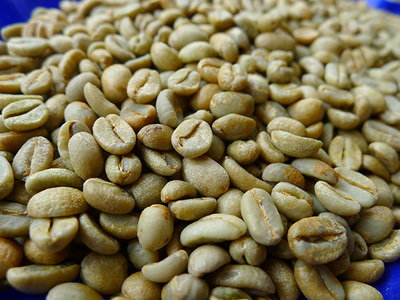Raw beans Wholesale Price Papua New Guinea washing treatment Coffee Raw beans Chimeier Manor Round Bean Price
Located in the east of the Indonesian archipelago, Papua New Guinea, which is dominated by highlands, has a pattern of large manors / farms and small farmers, growing a variety of coffee varieties. The coffee flavor of Papua New Guinea is very different from that of other Asian regions such as Indonesia, South Asia, India or the Pacific Islands. compared with Indonesian beans (Sumatra, Sulawesi) which are mostly semi-washed (wet peeling), they show low acidity, mellow texture and soil conditioning.
Papua New Guinea, to the east of Indonesia, has a standard island climate, located between the equator and 10 poisonous latitudes, with tropical rain forest volcanic rocks and plateau topography, between 1200 and 2500 meters above sea level, making it a paradise for growing coffee. The local yield is small, and about 85% of the total coffee is produced by the garden cultivation system of small farmers. Small farmers join local cooperatives and share their processing equipment. Coffee is Pakistan's second largest export of agricultural products, which shows the importance of coffee industry to Pakistan's economy. Because the variety of coffee is different from that of Indonesia, and the altitude is higher than Sumatra, coupled with the use of water washing treatment, the regional taste of PNG coffee is different from Indonesia's muggy and low flavor, but has bright, sweet and sour, flower and fruit aromas, similar to the flavor of South America.
Washed Papua New Guinea coffee always has a brighter, more sour performance, similar to the flavor of Central American coffee. Large estates / farms (plantation) usually have their own washing plants, and smaller individual coffee farmers are more likely to control the quality and flavor of their output. Located in the Wiki Valley of the western plateau of Papua New Guinea near the kimel Valley, Chimere Manor, like many large farms / estates, has its own washing plant, but it is in fact an estate owned by many independent small coffee farmers of the surrounding Opais people and, in a sense, a private cooperative. Due to the excellent growth conditions and the stable quality control process of the treatment plant, the coffee produced has an active sense of brightness and retains a considerable degree of flavor uniqueness of Papua New Guinea coffee.
Another special feature is that the variety of coffee planted by Kimmel cannot even be counted with one hand: Typica, Arusha, BlueMountain, MundoNovo, Catimor, Caturra. Or even more-- in fact, just as they don't put their eggs in the same basket, most farmers actually plant different varieties. Avoiding the risk that a particular variety does not adapt to the growth of a particular variety resulting in unsuccessful planting or production is not as expected, but also creates an interesting performance of its coffee flavor characteristics.
The round beans of this Chimeier Manor will taste a little spicy, with sweet and refreshing notes of nuts and sugar cane, creamy and smooth, the round beans taste more solid and the overall performance is balanced and smooth.
Country: Papua New Guinea
Grade: grade A
Producing area: Wiki Valley
Altitude: 1500 m
Treatment: washing
Varieties: Arusha, BlueMountain, Catimor
Producer: Kimmel Manor
Flavor: nuts, sucrose, low acid and solid

Important Notice :
前街咖啡 FrontStreet Coffee has moved to new addredd:
FrontStreet Coffee Address: 315,Donghua East Road,GuangZhou
Tel:020 38364473
- Prev

Ninety + levelup
Level Up is a sub-brand of Ninety Plus, a boutique raw bean processing company, which is a series of Ethiopian raw beans jointly launched by the company and raw bean trader Bodhi Leaf. The bean name is not named after the producing area, but after the bean flavor. The name of the bean is the local language of Ethiopia and is a clear description of the flavor of each bean.
- Next

Raw bean wholesale price two new bean Vera plateau yellow bourbon varieties of high quality coffee in Huilan, Colombia
The history of Colombian coffee dates back to 1808. A priest brought coffee to Colombia for the first time from the French Antilles via Venezuela. The suitable climate in Colombia provides a real natural pasture for coffee. Since then, coffee trees have taken root in this country. The country has also become the second largest coffee producer after Brazil and the world's largest Arabica coffee.
Related
- Detailed explanation of Jadeite planting Land in Panamanian Jadeite Manor introduction to the grading system of Jadeite competitive bidding, Red bid, Green bid and Rose Summer
- Story of Coffee planting in Brenka region of Costa Rica Stonehenge Manor anaerobic heavy honey treatment of flavor mouth
- What's on the barrel of Blue Mountain Coffee beans?
- Can American coffee also pull flowers? How to use hot American style to pull out a good-looking pattern?
- Can you make a cold extract with coffee beans? What is the right proportion for cold-extracted coffee formula?
- Indonesian PWN Gold Mandrine Coffee Origin Features Flavor How to Chong? Mandolin coffee is American.
- A brief introduction to the flavor characteristics of Brazilian yellow bourbon coffee beans
- What is the effect of different water quality on the flavor of cold-extracted coffee? What kind of water is best for brewing coffee?
- Why do you think of Rose Summer whenever you mention Panamanian coffee?
- Introduction to the characteristics of authentic blue mountain coffee bean producing areas? What is the CIB Coffee Authority in Jamaica?

